Sheet metal gauge is a critical concept in the manufacturing industry. The term ‘gauge’ refers to the thickness of sheet metal. It originated from the need for standardization in the metal industry, and over time, it has become an essential aspect of many manufacturing processes. Sheet metal gauge allows for precision in manufacturing, ensures compatibility across different parts and products, and plays a significant role in determining the functionality and lifespan of the final product.
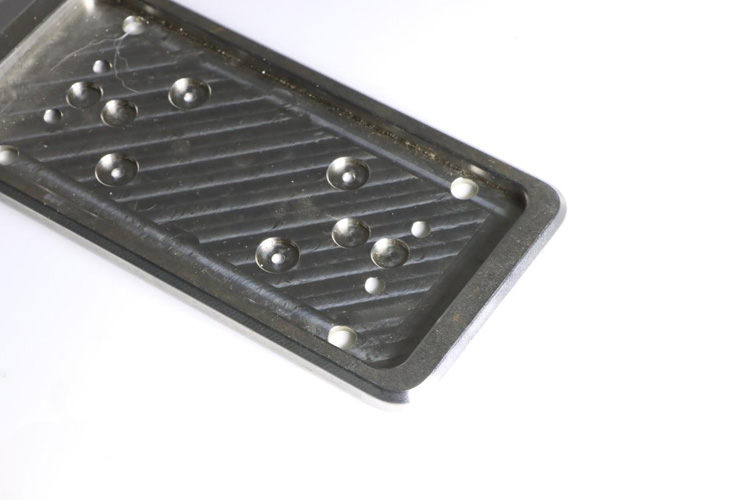
Sheet metal gauge serves as a standardized metric for quantifying the thickness of sheet metal.
Sheet metal gauge, often simply referred to as ‘gauge’, is a measure of the thickness of a metal sheet. It is a numerical value assigned to sheet metal, and the gauge is inversely proportional to the thickness, where a higher gauge number corresponds to a thinner sheet. This means that a 12-gauge sheet metal is thicker than a 16-gauge sheet metal.
The gauge system has its roots in the Birmingham Gauge (also known as the Stubs Iron Wire Gauge), a wire gauge system used in the UK from the 19th century until the mid-20th century. This system was based on the number of drawing operations used to produce a given gauge of wire. A wire drawn once would have a gauge of 1, while a wire drawn 20 times would have a gauge of 20. Over time, this system was adapted for sheet metal, and the term ‘gauge’ came to refer to the metal gauge thicknesses.
It’s important to note that this relationship is not linear and varies based on the type of metal being measured.
Today, there are several different gauge systems used around the world, including the US Standard Gauge, the British Standard Wire Gauge (SWG), and the Manufacturers’ Standard Gauge for Sheet Steel in the US. Each of these systems uses a different scale, so a sheet of 16-gauge steel is thicker than a sheet of 16-gauge aluminum.
Here are some of the different types of sheet metal gauges:
Manufacturers’ Standard Gauge
Used to indicate standard steel, galvanized steel, and stainless steel sheet metal gauge thickness.
Thickness increases as gauge number decreases (e.g., 18 gauge steel is 0.0478 inches or 1.214 millimeters thick).
American Wire Gauge (AWG) or Brown and Sharpe Gauge
Employed for non-ferrous metals like aluminum and brass.
Similar to Manufacturers’ Standard Gauge, sheet metal gauge thicknesses increase as gauge number decreases (e.g., 18 gauge aluminum is 0.0403 inches thick).
Galvanized Steel Gauge
Specifically used for galvanized steel.
Thickness of galvanized steel increases as gauge number decreases.
Other Material-Specific Gauges
Various materials like copper and brass have their specific gauge systems tailored to their characteristics.
The measurement of sheet metal gauges involves precision tools and techniques tailored to ascertain the sheet metal gauge thickness of the material accurately. The methodologies vary based on factors such as material type, desired precision, and the specific requirements of the fabrication process.
Mechanical Calipers
Traditional mechanical calipers remain a reliable tool for measuring sheet metal gauge. Calipers are used to physically measure the thickness of the material, providing direct and instantaneous readings.
Micrometer Measurement
Micrometers offer a high level of precision in measuring sheet metal thickness. This handheld device provides accurate readings by directly measuring the thickness of the material. It is often favored in situations where precision is paramount.
Laser Measurement
Laser technology provides a non-contact method for measuring sheet metal gauge. Laser devices emit a beam that reflects off the material, and the time taken for the reflection is used to calculate thickness.
Ultrasound Thickness Measurement
Ultrasound is a non-destructive testing method that utilizes sound waves to gauge the thickness of sheet metal. A transducer emits ultrasonic waves through the material, and the time taken for the waves to return is measured. This information is then used to determine the thickness of metal gauges.
Electromagnetic Induction
This method involves the use of electromagnetic coils to induce eddy currents in the sheet metal. The interaction between these currents and the material provides data that can be translated into thickness measurements. It is particularly effective for non-ferrous metals.
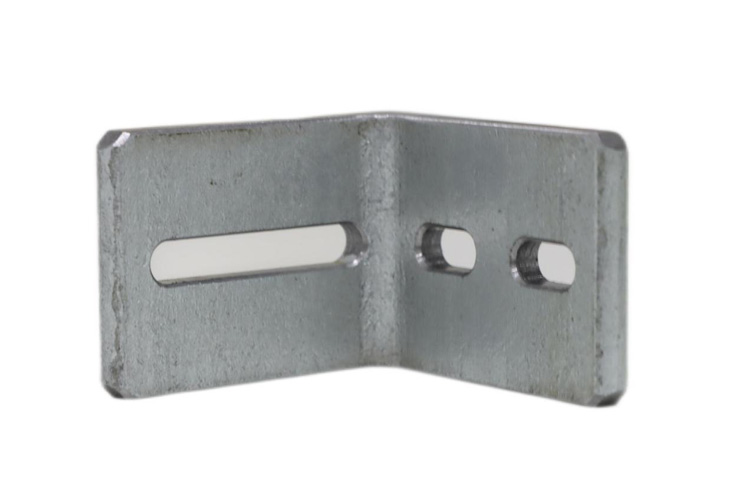
The standard metal thickness gauge chart is a visual representation that correlates gauge numbers with corresponding thickness values for various sheet metal materials. The larger the gauge number, the thinner the metal.
Gauge Number | Inches | MM |
9 | 0.1495 | 3.797 |
10 | 0.1345 | 3.416 |
11 | 0.1196 | 3.038 |
12 | 0.1046 | 2.657 |
13 | 0.0897 | 2.278 |
14 | 0.0747 | 1.897 |
15 | 0.0673 | 1.709 |
16 | 0.0598 | 1.519 |
Gauge Number | Inches | MM |
9 | 0.1144 | 2.906 |
10 | 0.1019 | 2.588 |
11 | 0.09074 | 2.305 |
12 | 0.08081 | 2.053 |
14 | 0.06408 | 1.628 |
16 | 0.05082 | 1.291 |
18 | 0.04030 | 1.024 |
20 | 0.03196 | 0.812 |
Gauge Number | Inches | MM |
9 | 0.15625 | 3.968 |
10 | 0.14062 | 3.571 |
11 | 0.125 | 3.175 |
12 | 0.10937 | 2.778 |
14 | 0.07812 | 1.984 |
16 | 0.0625 | 1.587 |
18 | 0.050 | 1.270 |
20 | 0.0375 | 0.9525 |
These sheet metal gauge thickness charts are used to determine the equivalent sheet metal gauge thickness in inches or millimeters, for a gauge number from the selected gauge size standard. The weight per unit area of the sheet can also be seen in pounds per square foot and kilograms per square meter in these gauge metal thickness charts. The gauge number holds no relevance to the actual measurements.
The importance of sheet metal gauge reverberates across a multitude of industries, influencing the design, manufacturing, and performance of diverse products. Selecting the appropriate sheet metal gauge is a critical decision that directly influences the success of a project:
Structural Integrity
The correct gauge ensures that structures and components meet required load-bearing standards, preventing structural failures and ensuring safety.
Weight Considerations
Different gauges of metal thickness affect the weight of the material, influencing applications where weight is a crucial factor, such as in automotive design or aerospace engineering.
Cost Efficiency
Choosing the right gauge optimizes material usage, contributing to cost efficiency in production processes.
Formability and Machinability
Gauge selection influences the ease with which the material can be formed or machined, affecting manufacturing processes and efficiency.
End-Use Requirements
Specific applications demand materials of particular thicknesses to meet functional requirements. For instance, electronic enclosures may require thinner gauges for space considerations.
Sheet metal gauge is influenced by several factors that collectively shape its characteristics and applicability.
Type of Material
Different materials have varying levels of strength, hardness, and ductility, which can affect the metal gauge thickness of the sheet metal. For instance, aluminum sheets tend to be thicker than steel sheets for the same gauge number because aluminum is a softer material than steel.
Manufacturing Process
The manufacturing process also influences the sheet metal gauge. Techniques such as rolling, extrusion, and drawing can alter the thickness of the sheet metal. For example, cold rolling the sheet metal can increase its strength and decrease its gauge metal thickness, thereby affecting the gauge. Similarly, the amount of pressure applied during the extrusion process can also change the gauge thickness of sheet metal.
Thickness Tolerance
Thickness tolerance refers to the allowable variation in thickness that can occur during the manufacturing process. This tolerance can affect the sheet metal gauge as it determines the minimum and maximum thickness that the sheet metal can have. The thickness tolerance is usually specified by the manufacturer and can vary based on the type of material and the manufacturing process used.

The versatility of sheet metal gauge finds application across diverse industries, influencing the design and production of various components.
In automotive manufacturing, sheet metal gauge is pivotal for designing and fabricating body panels, chassis components, and structural elements. The gauge selection influences the overall weight, durability, and safety of vehicles.
Construction and Architecture
Sheet metal gauge is a key determinant in constructing building facades, roofing, and structural elements. The choice of gauge (e.g. metal roof gauge thickness chart) ensures the requisite strength and integrity of architectural components, contributing to the safety and longevity of structures.
Aerospace Engineering
Aerospace applications demand lightweight yet robust materials. Sheet metal gauge plays a crucial role in designing components for aircraft and spacecraft, where weight reduction is essential for fuel efficiency and overall performance.
Electronics and Appliances
Sheet metal gauge is influential in the manufacturing of electronic enclosures, appliance casings, and other housing components. The selection of the right gauge contributes to the formability, weight, and protective qualities of these enclosures.
Manufacturing of Machinery and Equipment
In the production of machinery and equipment, sheet metal gauge is a critical consideration for components such as panels, covers, and structural elements. The choice of gauge impacts the functionality, durability, and overall performance of these industrial assets.
Metal Fabrication and Artistic Expression
Sheet metal gauge is employed in artistic pursuits, where intricate designs and sculptures are crafted from metal sheets. Artists use varying gauges of metal thickness to achieve desired forms, emphasizing the aesthetic and structural aspects of their creations.
Energy and Power Generation
Components used in energy and power generation facilities, such as turbines, enclosures, and structural elements, often rely on specific sheet metal thickness gauges to meet the demands of these critical applications.
Selecting the appropriate sheet metal gauge is a nuanced decision that requires a careful evaluation of various factors.
1. Understand Your Application
The first step in choosing the right sheet metal gauge is to understand your application. The gauge you choose will depend on the specific requirements of your project. For instance, if you’re working on a roofing project, you might need a thicker gauge to withstand environmental conditions.
2. Consider the Material Type
Different materials have different strengths and weaknesses. For example, aluminum is softer than steel, so an aluminum sheet of the same gauge will be thicker than a steel sheet.
3. Check the Manufacturing Process
The manufacturing process can affect the thickness of the sheet metal. Processes like cold rolling can increase the strength of the metal and decrease its thickness.
4. Look at the Thickness Tolerance
Thickness tolerance refers to the allowable variation in thickness during the manufacturing process. Make sure to check the thickness tolerance specified by the manufacturer, as it can affect the final thickness of the sheet metal.
5. Collaboration with Service Suppliers
Engage in collaborative discussions with CNC service suppliers like Richconn. Suppliers can provide valuable insights into material characteristics and recommend suitable gauges based on their expertise.
6. Future Considerations
Anticipate future considerations such as potential modifications or alterations to the design. Selecting a metal sheet thickness gauge that allows for flexibility in future adjustments can be advantageous.
Richconn is a leading CNC machining manufacturer that specializes in various metal parts and molds. They offer a wide range of services, including sheet metal processing.
Expertise
Richconn has extensive experience and knowledge in sheet metal processing. This ensures that they can provide high-quality services tailored to your specific needs.
Precision
Richconn uses advanced CNC machining techniques to ensure high precision in their work. Precision can significantly impact the functionality and performance of the final product.
Customization
Richconn offers OEM and ODM services, allowing you to customize the specific parts according to your requirements. This means they can work with a wide range of sheet metal thickness gauges to suit your specific application.
Efficiency
Richconn’s online custom sheet metal services simplify your ordering and manufacturing processes. This can lead to more efficient manufacturing processes.
Selecting the right metal for construction is a meticulous process that goes beyond mere availability. The thickness of the metal is a critical consideration, and sheet metal gauge serves as a straightforward yet essential technique employed by professionals to confirm suitability. The adoption of the appropriate sheet metal thickness gauge isn't just a procedural step – it's a strategic decision that can lead to cost savings and heightened operational efficiency, emphasizing the crucial role played by this technique in construction practices.
Get more professional suggestions based on your unique needs for free>>
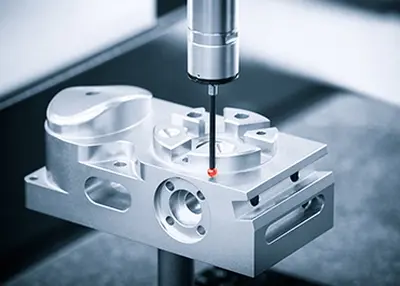 One Article Tells You What CNC Machining isSeptember 27, 2023The term CNC stands for "Computer Numerical Control" and CNC machining is defined as a subtractive manufacturing process that typically employs computer-controlled and machine tools to remove layers of material from a stock part (known as a blank or workpiece) and produce a custom-designed part.view
One Article Tells You What CNC Machining isSeptember 27, 2023The term CNC stands for "Computer Numerical Control" and CNC machining is defined as a subtractive manufacturing process that typically employs computer-controlled and machine tools to remove layers of material from a stock part (known as a blank or workpiece) and produce a custom-designed part.view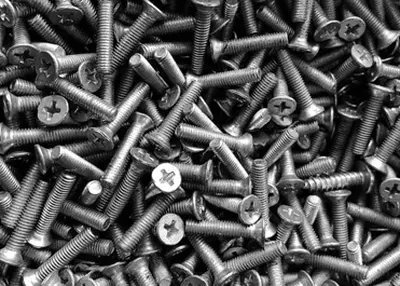 Galvanneal vs Galvanized: Which Sheet Metal Material Is Right for Your Manufacturing Needs?March 22, 2024Galvannealed and galvanized steel are distinct types of sheet metal, produced through different processes and possessing unique properties. Read on to find out more!view
Galvanneal vs Galvanized: Which Sheet Metal Material Is Right for Your Manufacturing Needs?March 22, 2024Galvannealed and galvanized steel are distinct types of sheet metal, produced through different processes and possessing unique properties. Read on to find out more!view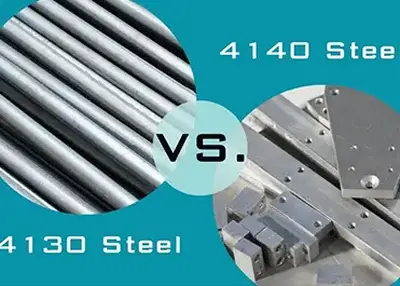 4140 vs 4130 Steel: A Comparison of Two Common Alloy SteelsNovember 27, 2023Steel is one of the most widely used materials in various industries, such as construction, automotive, aerospace, and manufacturing. Steel has many types and grades, each with different chemical compositions and mechanical properties.view
4140 vs 4130 Steel: A Comparison of Two Common Alloy SteelsNovember 27, 2023Steel is one of the most widely used materials in various industries, such as construction, automotive, aerospace, and manufacturing. Steel has many types and grades, each with different chemical compositions and mechanical properties.view Spray painting, powder spraying, electrophoresis: three common surface treatment methodsMarch 6, 2024Spray painting is a common way of surface treatment, its principle is to use air pressure to spray paint from the nozzle, forming tiny droplets, that and evenly attached to the surface of the painted object.view
Spray painting, powder spraying, electrophoresis: three common surface treatment methodsMarch 6, 2024Spray painting is a common way of surface treatment, its principle is to use air pressure to spray paint from the nozzle, forming tiny droplets, that and evenly attached to the surface of the painted object.view Tig vs Mig Welding: Choosing Between Two Great WeldingNovember 16, 2023When comparing MIG and TIG welding, it is important to consider the factors involved, the pros and cons they have, and the applications they are suitable for.view
Tig vs Mig Welding: Choosing Between Two Great WeldingNovember 16, 2023When comparing MIG and TIG welding, it is important to consider the factors involved, the pros and cons they have, and the applications they are suitable for.view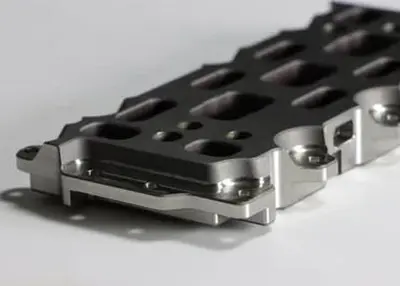 What is Precision Machining: Process, Applications & BenefitsAugust 24, 2023Nowadays, the prowess of precision machining lies in the unfaltering delivery of unparalleled quality, precision, and intricacy, which reverberates across a spectrum of industries. With advanced techn...view
What is Precision Machining: Process, Applications & BenefitsAugust 24, 2023Nowadays, the prowess of precision machining lies in the unfaltering delivery of unparalleled quality, precision, and intricacy, which reverberates across a spectrum of industries. With advanced techn...view